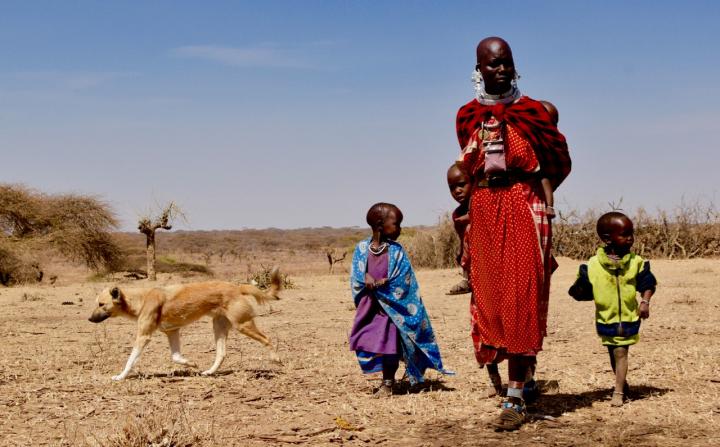
Credit: WSU
Promoting healthcare strategies that target both human and animal populations at the same time can save money, participant time and result in a two-for-one stop for health care services.
That’s according to a new study by scientists at Washington State University’s Paul G. Allen School for Global Animal Health.
The researchers treated roundworm infections in humans during their regular dog vaccinations campaign to eliminate rabies in 24 Tanzanian villages.
Their findings indicate the utility of integrating the treatment of humans and animals together, a concept known as One Health.
“We found there was no difference between the proportion of households that participated in the combined and stand-alone events,” said Felix Lankester, clinical assistant professor and lead researcher on the project. “Suggesting that people we’re not put off from attending a combined intervention where their children received treatment alongside their animals.”
One Health delivery platforms like the one Global Animal Health researchers implemented in Tanzania could play an important role in the World Health Organization’s global campaign to end the burden of neglected tropical diseases by 2030.
The WSU study, funded by the Bill & Melinda Gates Foundation Grand Challenges Award Program, was recently published in BMC Public Health.
Eight villages were provided clinics to treat roundworm, eight were provided clinics to vaccinate against rabies in dogs, and eight others were provided with integrated clinics to do both at the same time.
The integrated health clinics saw 91.5 percent of households per village receive roundworm treatment, while 82.5 percent of households attended clinics where roundworm treatments were provided alone.
For rabies vaccinations, the integrated health clinics saw 86.5 percent of households participate, compared to 90 percent of households when rabies vaccinations were offered alone.During focus group discussions with clinic attendees, 85 percent said the integrated clinics result in “two for one” health treatments.
In addition to reducing time for those who would have to travel to two health clinics, there were significant cost savings by combining the interventions for both diseases. The integrated health clinics cut transportation and advertising costs, lowering the cost of a deworming dose by an average of 12 cents and the cost of a rabies vaccination by an average of 66 cents.
By positioning the clinics outside of school grounds and offering treatment to the whole community rather than just children attending primary school, the study was also able to reach thousands of people, outside of the 7 to 13-year-old age range, who would have otherwise not been vaccinated by the United Republic of Tanzania’s National Schools Deworming Programme.
“We need novel, cost-effective and complementary control strategies to try to tackle these neglected tropical diseases,” Lankester said. “This study is important because it shows a One Health approach can reduce costs and reach more people.”
###
Media Contact
Laura Lockard
[email protected]
206-861-6884
Original Source
https:/
Related Journal Article
http://dx.




